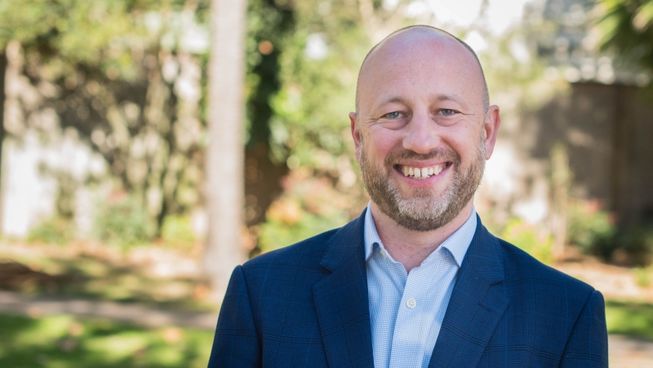"Patience in affliction"

I’ve more or less been in lockdown here in Melbourne for almost five months. In that time I’ve been into my CBD office twice. Currently I’m confined to my property for 23 hours a day, and when I do get out I can’t go further than five kilometres from home. And I’m tired of it.
Regardless of where you live in Australia I’m sure some of the limitations that you still experience you’re tired of too. Especially those limitations that are hindering good initiatives that honour God and love others – the meeting up with people face-to-face to pray, read the Bible and encourage them, the opportunity to be in the same physical space as your colleagues and interact with them in more informal ways, the chance to be on university campuses and make new student connections, the simple act of sitting and enjoying a coffee with someone and expressing kindness and hospitality. And of course the opportunity to gather as the body of Christ with my brothers and sisters at my local church.
So I pray, “Lord, would you heal people and stop the spread of disease so that restrictions can ease and these good things can return”. And of course, there is nothing wrong with this prayer.
But lately I’ve been reflecting on an apparent urgency (especially amongst churches and other Christian ministries) for things to “open up” quickly. Prayer requests have been dominated by this. And I understand it, I really do. But I wonder if it’s the only thing (or even the primary thing) that we should be praying. That rather, in this season, God might be hoping to use Christians (both collectively and individually) to bear witness to the world in another way, namely through our patience.
In his essay “Practicing patience: How Christians should be sick” ethicist and theologian Stanley Hauerwas points to something which should mark the Christian out from the world, that is their patience in affliction. We are to be patient patients. Such patience points to the character of our patient God. “In Him, patience has its beginning, and from Him as its source it takes its splendour and dignity”. Of course Scripture encourages such a practice also in times of difficulty (Romans 12:12).
Several years ago Australian Christian author Naomi Reed encouraged me in how to be patient in affliction in her award-winning memoir My Seventh Monsoon. In the book she writes of being frustrated and tired as she enters her seventh monsoon season while living in Nepal:
“I sat on the back porch of our Himalayan home…and wondered whether I would cope with another 120 days of rain. And in doing so, I began to long for another season”.
But as the book continues she shares a surprising realisation; that sometimes God can only teach us certain lessons in certain seasons. And if we’re impatiently wanting to rush through a difficult season that we are in we may miss those lessons that God is wanting to teach us.
As Reed beautifully puts it,
“We all know that if the seasons were the same, there would be no growth. We know that without winter there would be no spring. We know that without frosts there would be no bulbs and without the monsoon there would be no rice harvest. In the same way, we also know that without sorrow there would be no joy. Without pain there would be no healing. I think that's precisely where the beauty comes in. It comes in through the fruit of the seasons. He has indeed made everything beautiful in its time”.
There is fruit which can only grow and be tasted in certain seasons.
Waiting patiently in affliction not only bears witness to an impatient world. It may also allow us to hear God speak to us (and maybe challenge, rebuke, or encourage us) in ways that we might not hear if we are in a hurry for things to get back to the way they are. So may patience be a hallmark of the church, and ourselves individually as we live and wait in this COVID season.



